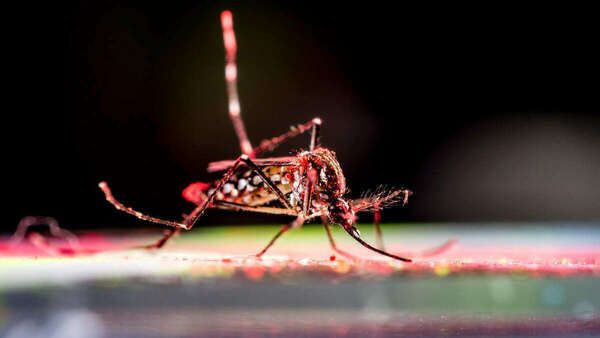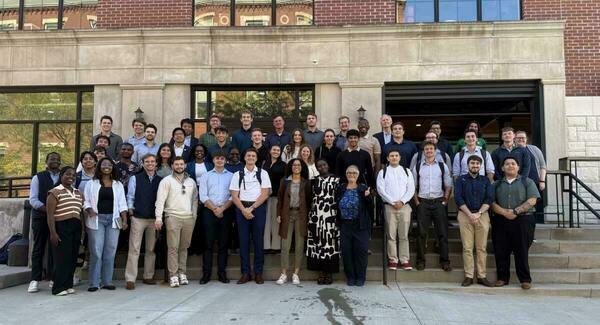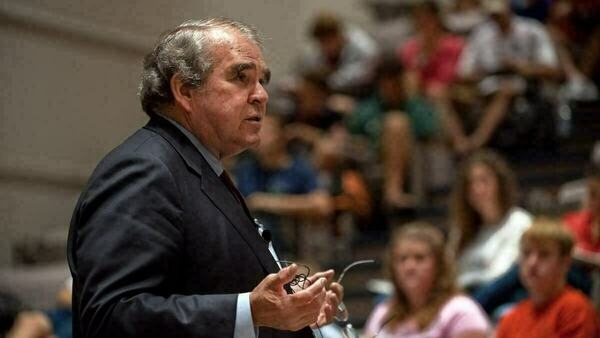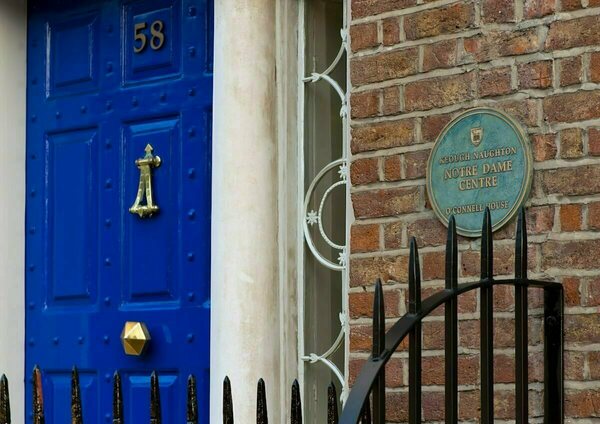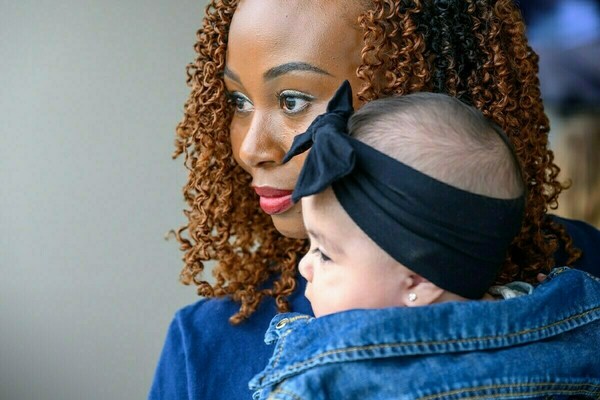ND Law Global Human Rights Clinic Sends First Undergraduate Intern to the UN Office of the High Commissioner for Human Rights in Geneva

Notre Dame Law School's Global Human Rights Clinic is sending its first undergraduate intern, Daniel Mooney, to collaborate with the United Nations Office of the High Commissioner for Human Rights (OHCHR) on its project addressing corruption and human rights. Mooney will assist in updating the draft publication Frequently Asked Questions (FAQ) on Anti-Corruption and Human Rights, a key resource for the global human rights community.
Mooney is an International Economics and Global Affairs student in the Keough School of Global Affairs, leadership fellow in the Klau Institute for Civil and Human Rights, and Kellogg international scholar in the Kellogg Institute for International Studies, through which he is pursuing global research in the fields of economic policy and global human development.
Under the supervision of Clinic staff attorney Jean Marc Brissau and research fellow Faisal Yamil Meneses, Mooney will spend seven weeks in Geneva, Switzerland, starting January 13. He will meet with the OHCHR Anti-Corruption and Human Rights Cluster to foster collaboration, advance research and advocacy, and contribute to a comprehensive publication. Following this in-person engagement, Mooney will provide additional support for the United Nations Human Rights Council's 60th Session in September 2025 and assist with the subsequent dissemination of the final publication.
"As a student of international economics and global affairs, my role as an undergraduate research intern within the Clinic has allowed me to more meaningfully explore the intersection of global human development and human rights through the lens of real world advocacy," said Mooney. "I feel honored to have been selected by the Global Human Rights Clinic's director, Professor Diane Desierto, to carry out this collaborative effort alongside the United Nations Office of the High Commissioner for Human Rights, and I look forward to producing a comprehensive final product under the supervision of the amazing Clinic staff."
Learn more about the Notre Dame Law School Global Human Rights Clinic at ndlsglobalhumanrights.nd.edu.
Originally published by at ndlsglobalhumanrights.nd.edu on January 14, 2025.
Latest Research
- Researchers deconstruct chikungunya outbreaks to improve prediction and vaccine developmentThe symptoms come on quickly — acute fever, followed by debilitating joint pain that can last for months. Though rarely fatal, the chikungunya virus, a mosquito-borne illness, can be particularly severe for high-risk individuals, including newborns and older adults. While the virus is common…
- Entrepreneurship in Action: Mapping Indianapolis's Startup Ecosystem with ESTEEMESTEEM Class of 2026 - Trip to Indy The ESTEEM Class of 2026, accompanied by several faculty members,…
- Notre Dame to Award 2026 Evangelium Vitae Medal to Wm. David Solomon, Founding Director of the de Nicola Center for Ethics and CultureThe de Nicola Center for Ethics and Culture at the University of Notre Dame is proud to announce that the late Wm. David Solomon, associate professor of philosophy emeritus and founding director of the Center, has been named the recipient of the fifteenth annual Notre Dame Evangelium Vitae Medal, the nation’s most important award for heroes of the pro-life movement. The medal will be presented to Professor Solomon’s family at a special Mass and dinner on Friday, May 1, 2026, at the University of Notre Dame.
- Annual Naughton Fellowships are open for applicationsThe University of Notre Dame has opened its annual competition for The Naughton Fellowships. Now in its seventeenth year, the Naughton Fellowship program provides opportunities for students and faculty from some of Ireland's leading research universities and the University of Notre Dame to experience…
- Fighting for maternal healthThe United States has the highest maternal mortality rate of developed nations. An innovative postpartum care model from Notre Dame can save mothers around the globe. Read the story Originally…
- NSF Cyber SMART’s fall meeting shapes fifth year of project, legacy and future plans, and adds new memberThe U.S. National Science Foundation (NSF) Cyber SMART center gathered for its fall meeting on the University of Notre Dame campus this September. The meeting served as a checkpoint with progress reports and new projects from research leads and students…








